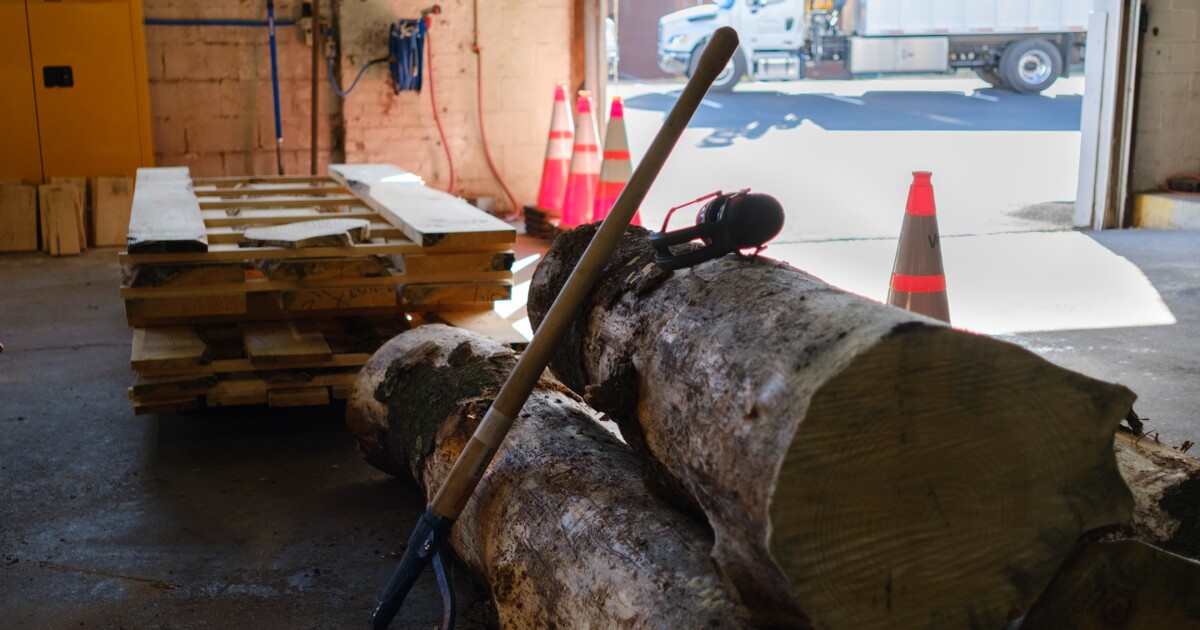If a tree falls in a forest and no one is around to hear it, perhaps it doesn’t make a sound. But in a city, lots of people are around to hear it, and it often winds up in a landfill.
Landforce opened The Mill this month, a zero-waste wood processing facility, to find sustainable uses for these otherwise discarded resources and simultaneously train workers in skills they can use in employment elsewhere.
The 10,000-square-foot facility that opened Oct. 3 in Pittsburgh’s East End will repurpose fallen or salvaged urban trees into useful forms such as lumber, pallet parts, tree stakes, and biochar.
Landforce is a local social enterprise non-profit that endeavors to restore and maintain green spaces while supporting people who face structural barriers to stable employment based on race or personal histories.
Crew members train in advanced manufacturing, arboriculture support, blueprint reading, and equipment operation. They gain certifications such as OSHA safety, chainsaw safety and defensive driving that can help them find stable employment.
“The Mill is more than a sawmill — it is a symbol of what Pittsburgh can achieve when community, environment, and opportunity come together,” the organization’s CEO Ilyssa Manspeizer said in a news release.
With support from organizations such as the U.S. Environmental Protection Agency, PA Department of Conservation and Natural Resources, Allegheny Foundation, and The Heinz Endowments, Landforce invested $2 million to bring the new facility to life.
Over the next three years, The Mill is expected to process 381 metric tons of fallen trees into 5,200 board feet of lumber and 56 metric tons of biochar. Landforce also hopes to generate more than $500,000 annually in earned revenue.
It is also estimated to remove 214 metric tons of CO2 equivalent from the atmosphere by converting trees into biochar. The process removes CO2 from the atmosphere by trapping the CO2 that the tree absorbed during its lifespan into a stable form of carbon that can be added back into the soil.
“We are proving that climate action and social equity can be built side by side,” Manspeizer said.

